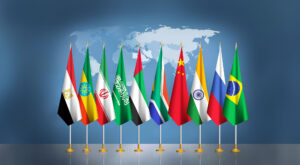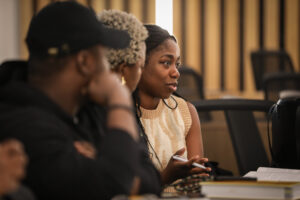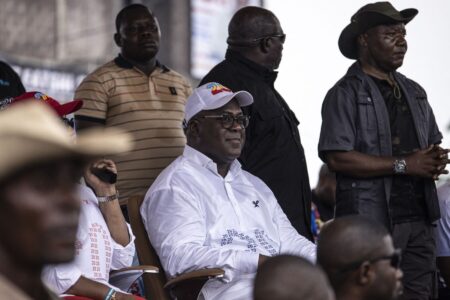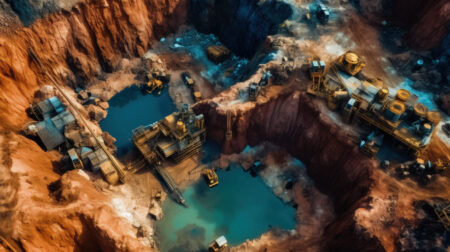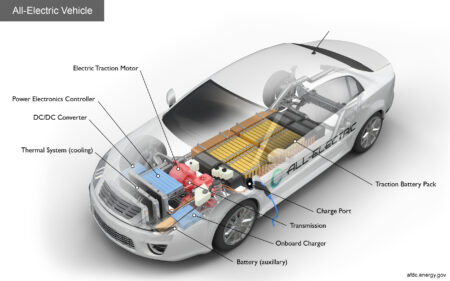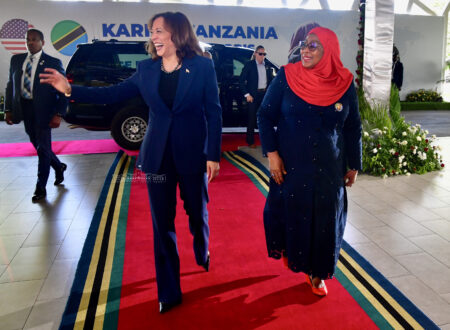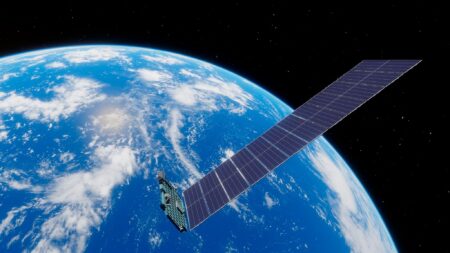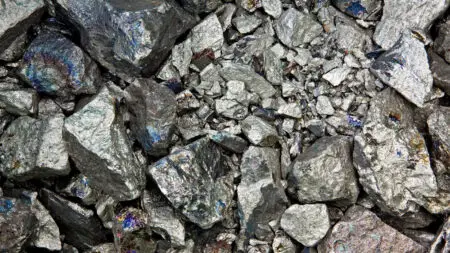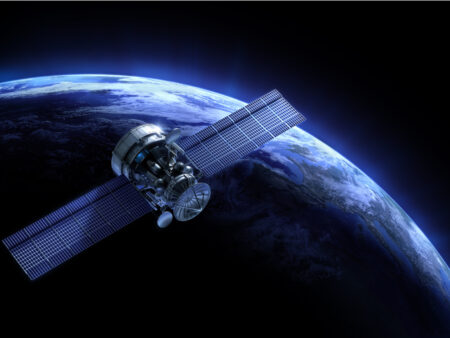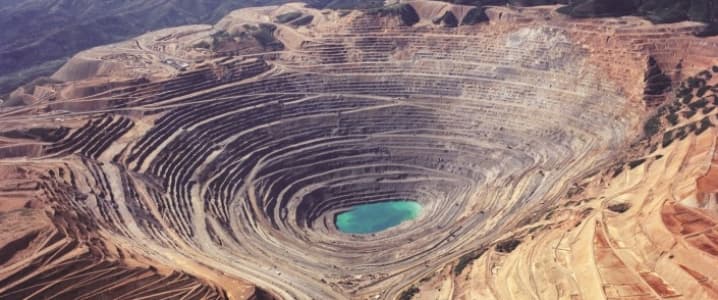- IMF Growth Forecasts: BRICS to Lead the World in the Next 5 Years
- Vantage Capital seals exit from PickAlbatros Hotels after $18.4M pandemic boost
- Madica backs Earthbond in bold pre-seed bet on sustainable solutions
- Venture capital and debt drive growth in Kenya’s agri-tech sector
- Sustainability Week Africa: Pioneering change amidst climate challenges
- Refugee Crisis in Chad as War and Hunger in Sudan Drive Thousands Across Border
- Senegal 2050: A Blueprint for Economic Transformation
- Kenya’s banking sector corporate taxes hit $563.7 million despite industry profit drop
Browsing: Cobalt
- For a country so crucial to the global energy transition, the world awaits DR Congo’s political transition.
- Congo’s political transition will be a massive factor in the significance of its massive natural resources in global energy transition needs.
- President Felix Tshisekedi, seeking a fresh mandate from the people, refers to Congo as the ‘solution country’ for the global climate crisis.
The Democratic Republic of Congo goes to the polls today to elect a president whose role will be vital in the global fight against climate change over the next five years. The Central African nation’s minerals, forests, and rivers are crucial to the future of green transition globally. Congo’s political transition will be a massive factor in the significance of these resources in global energy needs.
President Felix Tshisekedi, seeking a fresh mandate from the people, refers to Congo as the ‘solution country’ for the global climate crisis. However, he …
- The strategic manoeuvrings of the United States in the DRC’s cobalt mines serve as an international yardstick for how well it can balance economic aspirations with ethical imperatives.
- The DRC has become embroiled in a complicated geopolitical chess game, and it is no longer merely a national asset but a worldwide commodity.
- The strategic importance of cobalt from the Congo to the United States exemplifies the necessity for a multifaceted solution that upholds human dignity in the workplace, safeguards natural resources, and encourages economic resilience.
Conspicuously rising to critical importance on a global scale, cobalt has been overshadowed by the world’s precious metals. Although it is sometimes overlooked in resource talks in favour of its more glamorous cousins, gold and oil, this silvery-blue element—a byproduct of copper and nickel mining—is an essential component of modern technology.
Nevertheless, it is a mineral of the future because it powers electronic devices such …
- Lithium battery industry to grow over 30 percent annually from 2022 to 2030
- Market value for lithium batteries to exceed US$400 billion by 2030
- DRC, Zambia and Tanzania looking to refine cobalt, manufacture lithium batteries
The sale of Electric Vehicles (EVs) is booming in the transport industry of the developed world, and now Africa wants in.
Rather than continue to supply raw materials for the making of the electric vehicle, countries like DRC, Zambia, and Tanzania, want to refine the ores and even manufacture the final product, lithium batteries.
Their ambitions are well placed because the lithium battery industry is booming and will only keep growing. A 2022 analysis by the McKinsey Battery Insights team projected that the entire lithium-ion battery chain, from mining through recycling, could grow by over 30 percent annually by 2030 when it would reach a value of more than US$400 billion.
“Batteries for mobility applications, …
- US Vice President Kamala Harris pledges increased US trade with Tanzania
- This visit by VP Harris is expected to encourage US investment in Tanzania through trade, which already the office of the Vice President has pledged to do.
- US Lifezone Metals to set up second cobalt, nickel refinery plant in Tanzania
The trip to Tanzania by US Vice President Kamala Harris is already bearing fruit with the US announcing plans to increase trade with the country.
Air Force 2 landed in Tanzania late Wednesday where the US second in command was received in a colourful ceremony at the Julius Nyerere International Airport (JNIA) in the commercial port city of Dar es Salaam.
Her host, Tanzania president Samia Suluhu Hassan who was herself Vice President less than two years ago, hosted Vice President Harris at the State House fondly known in Swahili as Ikulu. Vice President Kamala Harris is in Tanzania …
Elon Musk applied for licensing to provide Tanzania with satellite Internet services; that was last year. This year, the Tanzania Communication Regulatory Authority (TCRA), has said, Musk’s Starlink, the company that provides the satellite internet services, needs only to complete the required procedure to set up shop in the country.
This response by Tanzania to Elon Musk’s application has stirred up controversy on Twitter with executives from both sides raising allegations and counter-allegations.
On Elon Musk’s side, you have allegations of foul play by existing telecom giants in Tanzania lobbying to keep his Starlink from entering the market.
Also Read: Nickel: Africa’s new opportunity as Russia-Ukraine crisis rages on
On Tanzania’s side, you have authorities playing it safe with a clean-cut statement saying Elon Musk’s Starlink needs only to comply with the country’s regulation requirements, otherwise, Starlink is more than welcome to enter the market.
If the Twitter exchange is …
Tanzanite is a precious stone said to be a thousand times rare than the rarest diamond. True to that claim, the tanzanite gemstone is mined in only one location in the world; a small area in Simanjiro District in Tanzania.
Given the scarcity of tanzanite you would expect that the single mining country, Tanzania would be stock rich, or at least earn the lion’s share of what the gem is valued.
This is not the case. In fact, the exact opposite is true. Tanzanite trade globally earns USD 500 million a year, but Tanzania’s export revenues are a paltry USD 20.75 million, or equivalent to 4.15 percent of the global export value!
Also Read: Tanzania: Small scale miners double in a year
The overwhelming question is why and more importantly how can the situation be resolved? how can Tanzania increase its earnings from its monopoly mining of tanzanite?
The
- Elon Musk Starlink satellite internet in Tanzania expected as early as first quarter of 2023
- Tesla to access nickel and cobalt from Tanzania’s Kabanga mines by 2025
- Tanzania, Kabanga form Tembo Nickel Corporation at 16% and 84% shares respectively
Elon Musk in Tanzania: Did you know, there are over 3250 satellites hovering in the Lower Earth Orbit over you? The number is not shocking, what is impressive is the entire satellite constellation is owned by a single company, Elon Musk’s Starlink.
In his ambitious effort to offer faster internet coverage globally, the world’s richest man actually plans to have as many as 42,000 satellites in the Lower Earth Orbit (LEO).
As we enter the New Year 2023, Tanzania is set to become the fourth African country to allow internet service provision from Starlink’s LEO satellites.
Even though Tanzania has already laid down some 7,910Km of fibre optic cable that …
The search for Congo’s cobalt has shown how the clean energy revolution has taken a turn. It is to save the planet from rising temperatures in an age of enlightened self-interest. But it has become mired in a familiar cycle of exploitation, greed, and deception. This often benefits Africa little or not at all.
On November 24, 2021, a group of G7 countries, including Japan and the US made a decision. They stated they will withdraw crude oil from their Strategic Petroleum Reserve. (SPR). The SPR was an underground salt tank in Utah, turned into a recession and warproof facility. It was in reaction to the twin World Trade Center explosions on September 11, 2001.…
For many in Africa, the concept of an electric vehicle is still new, by the time these futuristic automobiles become popular in Africa, land rights in the Congo may very well be buried deep in the cobalt mines.
Did you know, the Democratic Republic of the Congo produces more than half of the world’s supply of cobalt? You probably did not, neither did I. Here is another fun fact, did you know cobalt is the mineral that powers your phone battery, your laptop battery and most all your rechargeable batteries?
I bet you were also not aware that this bluish mineral that is found in a dull brownish ore of dirt is used in hospital labs for imaging, for cancer radiotherapy and even for sterilizing medical equipment.
Cobalt is also in the component that stores solar energy in the solar panels that have now become popular solution to Africa’s energy …
